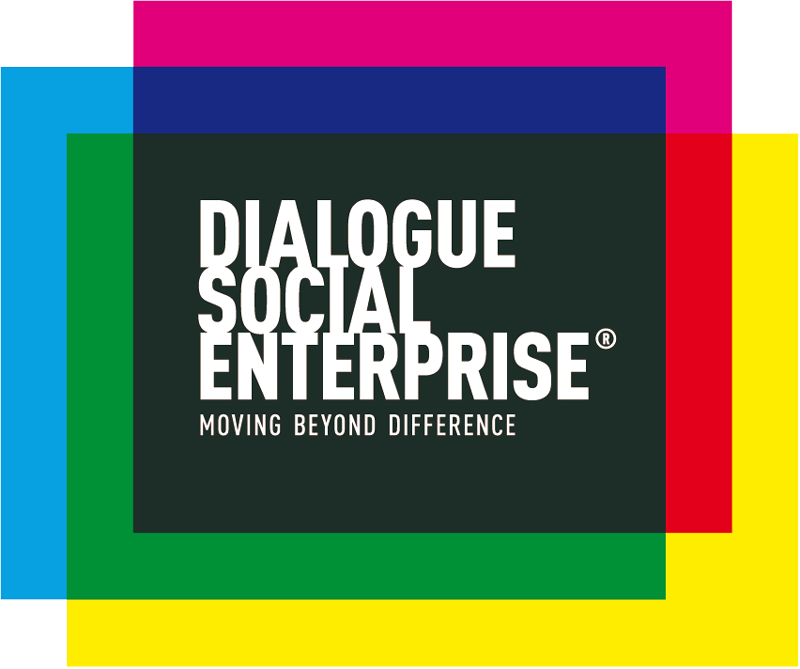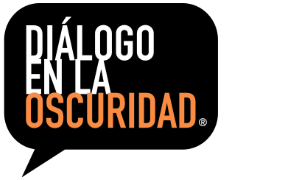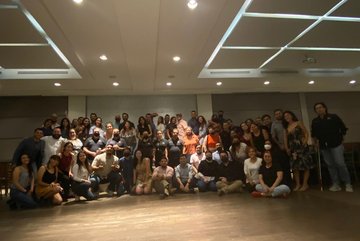Taking advantage of the breaks that the pandemic has granted us, various DiD sites around the world have reactivated operations, including Mexico.
I spoke with Oswaldo Martínez, head of operations at DiD Monterrey to learn more about its reopening.
DSE: When and why did Dialogue in the Dark Monterrey resume operations?
Oswaldo: Our first post-pandemic event, if you can call it that, was last May, after two years and two months without in-presence events. It was two nights of dinners in the dark.
It was necessary to reactivate. On the one hand, followers on social media were asking for it. On the other hand, the team needed it.
DSE: Did you notice anything special about the visitors behavior after two years without being in the dark?
Oswaldo: Nothing. I commented it with the team, it was as if these two years of confinement had not existed. People came cheerful and enthusiastic as always, eager to talk and get to know each other.
There is even a moment during our dinners when visitors are invited to dance in the dark, for which they have to go to a dance floor, where, of course, there are crowds of people. Last May we hesitated to do the dance part, but it is something that people love. So we left it up to them and told them that there would be no physical distance on the dance floor, so they could stay at their table. And to our surprise, no one stayed at their table and the dance floor was full!
Tickets for the dining in the dark event sold out in less than a week - we couldn't believe it!
DSE: And does that give you any message as a team?
Oswaldo: Yes. That people still value and crave human contact over the fear of contagion, or even over the anxiety of being without their phone for 3 hours in the dark.
I think DiD gives them that break from the daily grind and frenzy of being online all day. In the dark they force themselves to be present, with themselves and with the people who accompany them in the experience. In the light people rarely take those breaks.
DSE: And how did the new start work for the team members with disabilities?
Oswaldo: It was a difficult time for us. Those of us who did have a stable job somehow stayed afloat mentally and professionally. But those whose main work activity was DiD had a hard time, it was too much isolation and too much inactivity for them.
In spite of that, the team came back happy and excited. Perhaps a little disengaged, a little shy and with moderate energy. It served us well to reconnect with people, but I think we still need more DiD activity to reconnect with our professional purpose as facilitators.
DSE: What's next for DiD Monterrey?
Oswaldo: In June we presented two dark workshops on resilience and leadership at a cultural center. The workshops were for all audiences and it was another great opportunity to reconnect with the content of the workshops. The response from people was quite positive. We hope that this will help us reactivate especially the private events, which are the largest part of our experiential offerings.
At the moment we already have a couple of events sold out. However, we have challenges; on the one hand, we are in the fifth wave of Covid in Mexico and to operate experiences we have to make clear agreements with our clients, such as ensuring that participants are vaccinated, or that if someone has symptoms, they should not come to the experience in the dark, and to maintain measures such as the use of masks and disinfectant.
On the other hand, we are in need of renewing our contents. Dark dinners continue to work well. However, we notice that the concept of workshops is already a bit limited. We have to create new sequences of exercises in the dark, and that these correspond more with the current challenges of customers in their companies, in addition, of course, to address the issue of diversity and inclusion, because many organizations are turning to this area.
The interview was held by José "Pepe" Macías for DSE.


